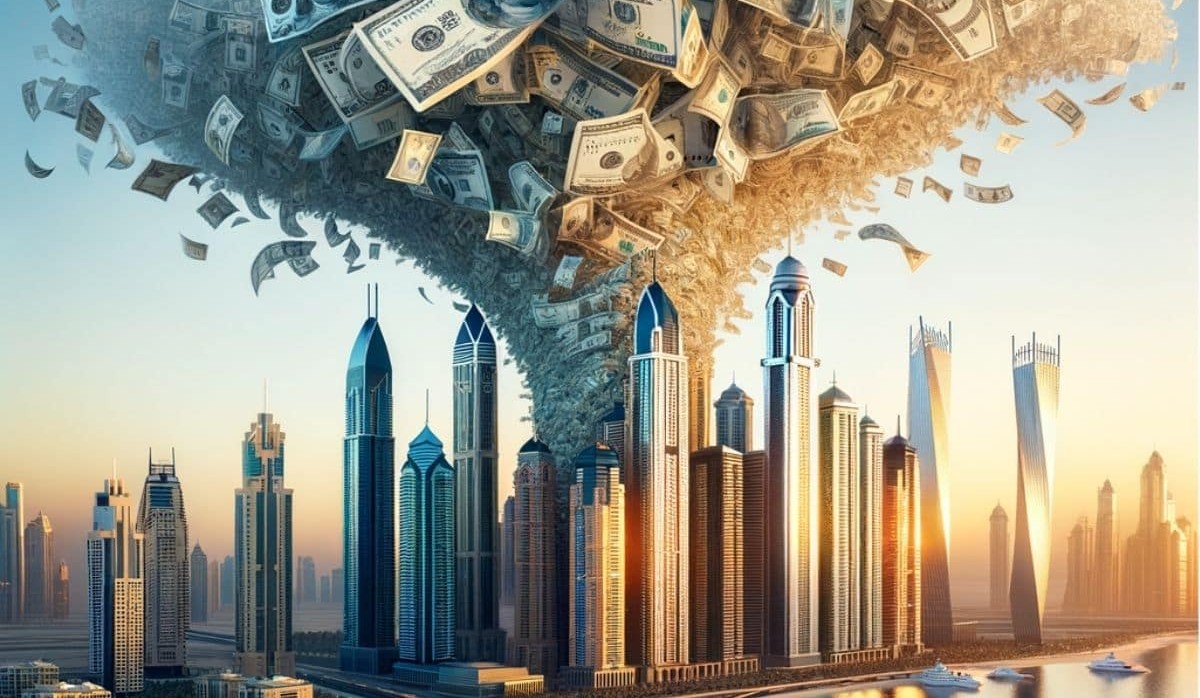Dubai’s Real Estate Market: Strategic Growth Projected Through 2025
Dubai’s real estate market has proven its resilience in 2024, achieving record-breaking growth driven by soaring property prices, a booming luxury market, and an influx of international investors. With property prices increasing by 41% in the first half of 2024 and over 43,000 transactions completed, the city has reinforced its position as a global leader in real estate innovation and investor confidence. Experts now predict that 2025 will mark a new era of strategic, sustainable growth fueled by government reforms, foreign investments, and economic diversification.
A Shift Toward Intelligent Growth
Industry leaders believe that 2025 will bring a shift from sheer scale to intelligent and strategic growth. Dubai’s leadership is focusing on balancing supply and demand, expanding affordable housing options, and embedding sustainability at the core of development. Farooq Syed, CEO of Springfield Properties, emphasized the importance of policy-driven strategies, stating, “Dubai’s leadership has shown an unparalleled ability to anticipate market needs. With a focus on balancing innovation and growth, we expect continued confidence from investors looking to capitalize on Dubai’s policy-driven vision for the future.”
Emerging Hubs and Infrastructure-Led Growth
New districts such as Dubai South and infrastructure-linked areas are set to play a pivotal role in shaping the market. These hubs will complement the city’s ultra-luxury developments, which continue to set global benchmarks in design, technology, and exclusivity. Akshay Nagdev, Managing Partner of Foremen Fiefdom, highlighted the strategic factors driving growth, including robust foreign investments and smart city initiatives. “Looking ahead, the UAE Central Bank’s forecast of 6.2% national GDP growth, alongside Dubai’s sustainable development strategies, positions the real estate market for continued expansion, with a likely shift toward more affordable and mid-range property developments,” Nagdev explained.
Dubai’s Population Growth and Economic Diversification
Under the Dubai Economic Agenda D33, the emirate aims to double its economy by 2033, further fueling the real estate sector’s growth. The city’s population is projected to grow from 3.6 million in 2024 to over 7.8 million by 2040, driving demand for housing and infrastructure. Long-term policies supporting sustainable development and inclusivity will ensure the sector meets this demand effectively.
The Luxury Market and Migrating Millionaires
Dubai remains a top destination for global wealth, with iconic neighborhoods like Palm Jumeirah, Downtown Dubai, and Dubai Marina attracting international investors. In 2024, the UAE welcomed 6,700 millionaire migrants, the largest global influx. This trend underscores the emirate’s appeal as a hub for luxury living and premium investments. “From waterfront villas to skyline-defining towers, Dubai continues to captivate global investors with its unmatched lifestyle and economic opportunities,” said Syed.
Sustainability and Inclusivity as Cornerstones
As the city transitions into 2025, sustainability and inclusivity are becoming central to its growth strategy. Developers are increasingly focusing on energy-efficient designs, eco-friendly construction, and affordable housing to create a more inclusive market. “Dubai’s real estate sector is not simply evolving – it is pioneering a smarter, more resilient future that once again redefines global benchmarks,” Syed noted.
The Role of Family Offices and Strategic Events
The rapid growth of family offices in the UAE is playing a critical role in the expansion of the real estate sector. Events like the Family Office Summit and Abu Dhabi Finance Week provide platforms for exploring innovative investment opportunities and building strategic partnerships. Obediah Ayton, Director of Dubai Hold Co., highlighted how these developments bolster Dubai’s reputation as a global financial hub.
The Importance of Technology and Innovation
Technology and innovation are driving forces behind Dubai’s real estate evolution. Smart city initiatives, digital platforms for property transactions, and AI-driven market analytics are streamlining processes and enhancing investor experiences. These advancements not only improve operational efficiency but also set Dubai apart as a leader in real estate tech adoption.
Expanding Affordable Housing Options
In 2025, the focus on affordable and mid-range housing developments will gain momentum. These projects are designed to cater to the growing middle-class population and ensure a balanced market. Affordable housing initiatives align with the government’s goal of creating a more inclusive real estate landscape, enabling broader access to quality housing.
The Road Ahead: Resilience and Purposeful Growth
Experts agree that Dubai’s real estate sector is entering a phase of deliberate recalibration, ensuring growth remains resilient and purposeful. With policies emphasizing sustainability, inclusivity, and balance, the city is well-positioned to achieve its vision for 2025 and beyond. “It is not a pause or slowdown, but rather a strategic recalibration to ensure growth remains aligned with long-term objectives,” Syed concluded.
As Dubai continues to innovate and adapt, its real estate market is set to solidify its status as the world’s foremost destination for living, working, and investing. The strategic growth initiatives planned for 2025 signal a bright future for the emirate, driven by innovation, resilience, and a vision for sustainable development.

